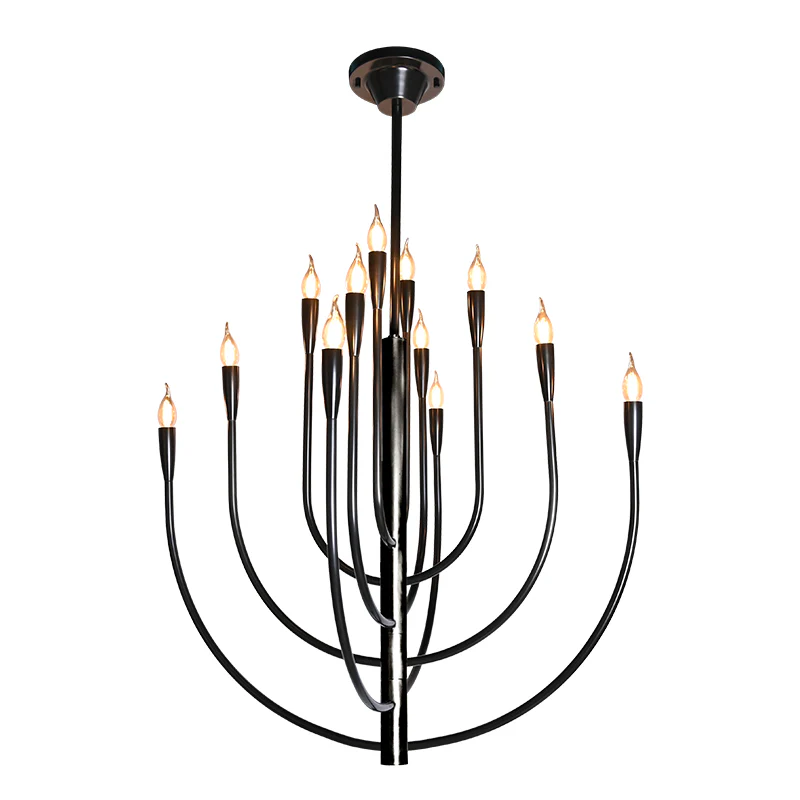How Does a Wall Sconce Work? An In-Depth Guide to Understanding Wall Lighting
How Does a Wall Sconce Work? An In-Depth Guide to Understanding Wall Lighting
Wall sconces are a popular choice in both residential and commercial lighting design. The combination of Aesthetics and functionality makes them a favorite among homeowners and interior designers alike. In this article, we will delve into how wall sconces work, their design features, types, and installation tips. By adding this guide to your knowledge, you can choose the perfect wall sconce for your space and understand how to use them effectively.
Understanding Wall sconces
Wall sconces are wall-mounted light fixtures that not only illuminate but also enhance the decor of a room. They can serve multiple purposes, including providing ambient light, task light for specific activities, or accent lighting to highlight certain aspects of your decor.
Basic Mechanics of Wall sconces
At their core, wall sconces work by harnessing electrical energy to provide light. Here’s a simple breakdown of how a typical wall sconce operates:
| Step | Description |
| 1 | Electricity travels through the wiring in your walls to reach the sconce fixture. |
| 2 | The electrical current powers the bulb located within or adjacent to the sconce. |
| 3 | The bulb emits light, which is directed outwards and/or upwards/downwards depending on the design. |
| 4 | The light diffuses or reflects through a shade or directly into the space, illuminating the surrounding area. |
Types of Wall sconces
When selecting a wall sconce, it’s essential to understand the different types available. Each type serves different lighting needs and can contribute uniquely to your interior decor. Here are a few popular types:
1. Traditional Wall sconces
These sconces often feature an antique design, with ornate detailing and classical finishes. They typically use incandescent or LED bulbs.
2. Modern Wall sconces
Characterized by sleek lines and sometimes minimalistic shapes, modern sconces can use advanced technology such as integrated LED Lighting.
3. Swing Arm Wall sconces
These versatile sconces come with an adjustable arm, allowing you to direct the light source wherever needed. They are excellent for reading nooks or beside beds.
4. Decorative Wall sconces
Often used as accent pieces, decorative sconces may not only serve a lighting function but also act as a statement of style and art.
Benefits of Using Wall sconces
Wall sconces offer several advantages, making them an appealing lighting solution:
- Space-Saving: sconces are wall-mounted, freeing up valuable floor space, which is particularly beneficial in smaller rooms.
- Versatile Lighting: They can be used to create ambient, task, or accent lighting based on your needs.
- Design Element: sconces can add layers and depth to your decor, complementing other design elements in the room.
- Energy Efficiency: With progress in LED technology, you can find sconces that provide bright lighting while consuming less energy.
Installation Tips for Wall sconces
Installing wall sconces might seem daunting, but with the right approach and a bit of knowledge, you can do it yourself. Here are some tips to keep in mind:
1. Determine Placement
Consider the function of the sconce. For instance, if you want to use them for reading, install them higher near seating areas. For ambient lighting, lower placements will help diffuse light throughout the room.
2. Choose the Right Height
The standard height for wall sconces is approximately 60 to 72 inches above the floor, but this can vary based on the design of the room and furniture.
3. Follow Electrical Safety Guidelines
If you’re not familiar with electrical work, consider hiring a professional electrician. Ensure that the power is turned off before you begin the installation process.
4. Select Appropriate Bulbs
Choose bulbs that match the function of the sconce. For task lighting, opt for brighter bulbs, whereas softer lights are better suited for ambient applications.

Common Questions About Wall sconces
When exploring the topic of wall sconces, you may have some common questions:
- Can I install a wall sconce without electrical work? Yes, there are also battery-operated sconces available that do not require hardwiring.
- What types of bulbs are best for wall sconces? LED bulbs are recommended for their energy efficiency and longer lifespan.
- Can wall sconces be used outdoors? Yes, there are weather-resistant models designed specifically for outdoor use.
- How do I clean wall sconces? Depending on the materials, use a soft cloth or appropriate cleaning solution to keep them dust-free and shiny.
Conclusion
Understanding how wall sconces work and the various options available can significantly improve your lighting choices and overall Home decor. By considering the factors mentioned, you can select a wall sconce that not only meets your lighting needs but also enhances your space's Aesthetics. Whether you opt for traditional designs or modern fixtures, wall sconces are sure to elevate any room. Remember to follow best installation practices and consider consulting a professional if you're unsure about electrical work. Happy decorating!
